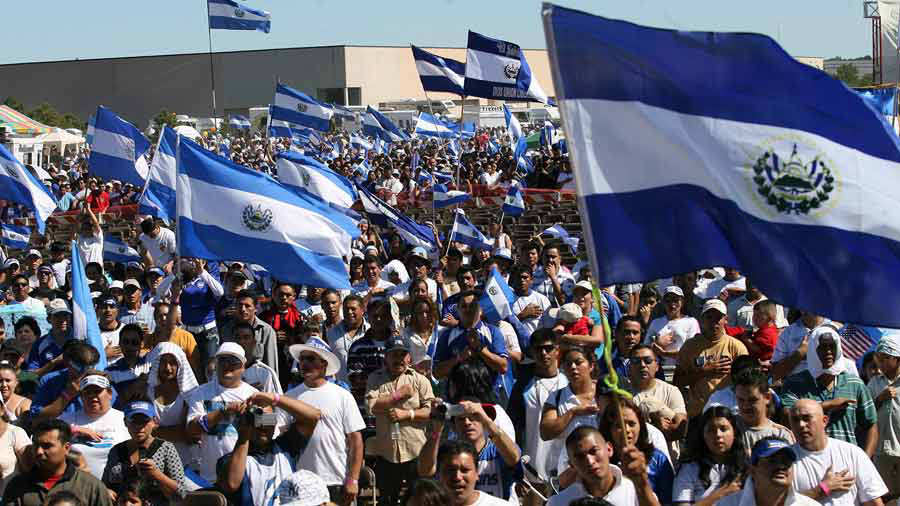
The Presidency says it is “unconstitutional” because the requirements required by the Assembly to prove rooting in El Salvador “are very restrictive.”
President Nayib Bukele alleged that the decree which the Assembly endorsed for Salvadorans living abroad to participate as candidates in popular elections is “unconstitutional” in terms of the criteria established for them to demonstrate their roots in the locality they wish to represent in the elections.
“These criteria are exclusive to Salvadorans living abroad who fail to verify any of them, when in fact none of these criteria alludes to substantial aspects for the exercise of the said decree,” says Bukele .
In the legislative decree of the parliamentarians they placed several requirements for Salvadorans living abroad who want to run for public office as mayor, deputy or president of the Republic.
You may be interested in: Voting abroad in 2021 could cost up to $ 40 million
In addition to all that the Supreme Electoral Court asks of the interested parties, for compatriots living abroad, it is added to show “that their father, mother, spouse or minor children reside in the municipality and are dependent on the ‘applicant, attaching a copy of the Unique Identity Documents of any of the first three, or a copy of the birth certificate of any of their children.’
It is also required to prove that it owns property in this municipality, attaching an extracted certificate issued by the National Center of Registers or a certified photocopy of the respective public deed testimony, or solvency of payment of tax and municipal fees of the property property registered in his name, issued in the year in which he requests the registration of his candidacy, among other requirements.
The above was because the Assembly had yet to comply with a resolution of the Constitutional Chamber mandating it to legislate for Salvadorans residing abroad to participate as candidates in elections.
You may be interested in: Residents abroad may be candidates for popularly elected positions in 2024
On December 23, 2016, the Constitutional Court ruled that the vote of compatriots living abroad and participating as candidates in the electoral process is meritorious, so it was necessary to make changes to current regulations to enable the exercise of the passive right to vote.
Bukele mentions that the Chamber’s ruling on the matter explains that it was established that the requirements for compatriots to register as candidates must be “reasonable in view of their particular circumstance which places them on a different plane. with Salvadorans residing in the country, but, on the other hand, who do not unduly restrict the exercise of that right. “
ARENA MP Mauricio Ernesto Vargas explained that the government “is not interested in rooting, for one simple reason, which is electoral, they can move from outside to other specific municipalities that can charge some number of voters, because they don’t need to show rooting. “
In this regard, in the veto, the Presidency argues that “there are groups of Salvadorans living abroad who will not meet these criteria, either because they emigrated with their entire family group, or were born in foreign territory.” .
Whereas, for the executive director of Citizen Action, Eduardo Escobar, President Bukele should not have made a veto for “unconstitutional”. Escobar analyzes that it is a difference of opinion between the Executive and the Assembly that had to be reflected in a veto for “inconvenience”.
“This could lead us to what the Chamber ordered President (Bukele) not to make arbitrary and irresponsible use of the veto as unconstitutional, it does so to stop the law-making process, if it had vetoed it for inconvenience the Assembly overcomes it to come into force, “Escobar said.
You may be interested in: Government and Assembly leave limbo to vote abroad
However, he shares in some way Bukele’s allegations regarding the “restrictive” form of some criteria that the Assembly requires for those running as popular candidates.
“What the Presidency is right about is that the legislature has been very restrictive in the way it checks the rooting, in cases of countries that allow candidacies from abroad, they propose as a form of rooting having resided in a certain constituency and prove it, or have had the last residence in that constituency, either birth or have resided, is another way of proving rooting, there is some reason in the Executive to point out that these are very restrictive shapes, “Escobar pointed out.
But, he warns that “this does not give him the reason to raise the veto for unconstitutional.”
Bukele argues that there are also vices of inequality in the legislative decree because it affects the economic capacity of the person concerned to run for office to prove that he has properties in the constituency he aspires to represent.
In this regard, Escobar points out that these are not necessarily large properties or real estate.
“That the rooting is proven by means of a property or society does not link the right to vote to economic capacity as the president mistakenly does, because I can have a house of little value and with that I check my rooting, in the fin was a humble house and I lived there for a while, it is not a matter of economic capacity “, Escobar deepened.